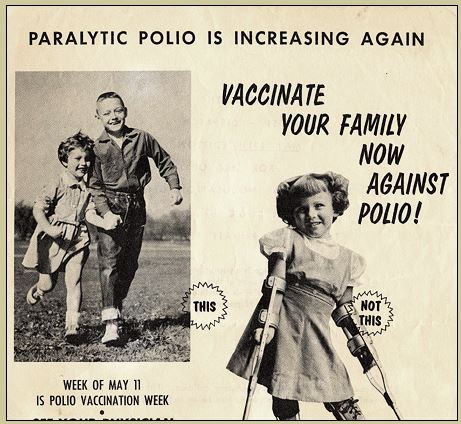RSV introduced into population by polio vaccines; now Pfizer’s RSV vaccines risk harming, killing people
01/26/2024 / By Ethan Huff

The dreaded “new” disease known as RSV, short for respiratory syncytial virus, is the target of Pfizer’s new RSV vaccine, called “Abrysvo” – but are Americans aware of the true history of RSV and how it is actually caused by Big Pharma’s polio vaccines of old?
It is true. The polio vaccines our parents and grandparents received contained a monkey virus called the coryza virus that, once it was injected into tens of millions of bodies, the medical establishment quietly renamed it as RSV to hide its true origins as a vaccine-induced illness.
Most of America has no clue that RSV is basically a vaccine side effect, even as millions are herded into taking Abrysvo for their own “protection.”
On Aug. 21, 2023, the U.S. Food and Drug Administration (FDA) quietly approved Abrysvo. Pregnant mothers are being told to take it despite the fact that it greatly increases the risk of pre-term birth and all of the short- and long-term health complications for the baby that often ensue.
Had polio vaccines never been widely administered, followed by a slew of other vaccines over the years that contain hidden viruses of their own, i.e., simian virus 40 (SV40), there probably would not even be an RSV “crisis,” assuming one is real, in the first place.
Even so, Pfizer was given the green light to peddle yet another death drug on the masses, which the company proudly announced is the only RSV injection currently on the market for elderly people and pregnant mothers.
“Pfizer currently is the only company with an RSV vaccine to help older adults, as well as infants through maternal immunization,” Pfizer boasted back in September.
(Related: Back in 2022, experts Lyn Redwood, RN, MSN, Dr. Meryl Nass and Dr. Ryan Cole issued a warning to presidential contender Robert F. Kennedy, Jr., that RSV vaccines must be stopped because they are dangerous.)
EU approves Abrysvo for adults 60 and older, pregnant mothers
Just two days after the FDA green-lighted Abrysvo here in the States, the European Union (EU) granted bloc-wide market authorization for the drug to similarly be administered there to adults 60 and over, as well as to pregnant mothers.
About a month after that, the United Kingdom’s Medicines and Healthcare products Regulatory Agency (MHRA) gave the green light to Abrysvo for basically these same demographics as well, this following a Joint Committee on Vaccination and Immunisation (JCVI) recommendation.
Since that time, Abrysvo has been unleashed in Canada, while a similar drug called Arexvy, an RSV injection produced by UK-based drug giant GlaxoSmithKline (GSK), was unleashed in Australia.
“The GSK and Pfizer RSV vaccines are similar,” Medical Xpress reported.
“They both contain a small component of the virus, called the pre-fusion protein … Abrysvo, the Pfizer RSV vaccine, has been trialled in pregnant women … It has been approved in pregnant women in the United States, but is not yet approved in Australia.”
Del Bigtree of The Highwire examined the package insert for Abyrsvo, noting that it increases the risk of pre-term birth, not to mention it contains toxic “buffer” ingredients like polysorbate 80 and residual DNA from host cell proteins collected from Chinese hamster cell lines.
“[RSV] came from a monkey virus that in the manufacturing of the polio virus we introduced to the world,” Bigtree said following the discovery.
As explained by The Exposé, the polio viruses cultivated for use in vaccines are cultured on monkey kidney tissue and associated cell lines. This tissue is naturally infected with monkey (simian) viruses and other microorganisms and agents such as protozoans and amoebas that have no business getting injected into human bodies.
As long as We the People continue to let it happen, Big Pharma will trounce all over our health and our rights. Find out more at BadMedicine.news.
Sources for this article include:
Submit a correction >>
Tagged Under:
Abrysvo, Big Pharma, Censored Science, coryza virus, death, FDA, infections, kill vectors, outbreak, Pfizer, pharmaceutical fraud, polio, respiratory syncytial virus, rsv, toxic ingredients, vaccination, vaccine damage, vaccine injury, vaccine wars, vaccines
This article may contain statements that reflect the opinion of the author
RECENT NEWS & ARTICLES
COPYRIGHT © 2017 FDA NEWS




















